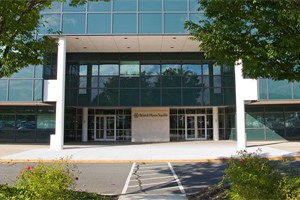 Bristol-Myers Squibb and Nektar are pressing ahead with phase III trials for the combination of Opdivo and NKTR-214 after reporting new results at ASCO, although the companies were forced to defend the data.
Bristol-Myers Squibb and Nektar are pressing ahead with phase III trials for the combination of Opdivo and NKTR-214 after reporting new results at ASCO, although the companies were forced to defend the data.
The phase I/II PIVOT trial met the criteria needed to advance PD-1 inhibitor Opdivo (nivolumab) and CD122-biased agonist NKTR0214 into pivotal trials in melanoma, renal cell carcinoma and urothelial cancer, said the partners. However, a comparison of data from the trial reported last November and at ASCO showed a reduction in response rates with the duo that sparked a lot of debate, and spooked some investors.
BMS and Nektar were forced to defend the results over the weekend and – more specifically – the decision to implement an expensive late-stage trials programme on what some critics suggested was a scant set of clinical evidence. The first phase III trial in melanoma is due to start in the third quarter.
Some of the confusion comes from the design of the trial, which is divided into two parts – an initial assessment (stage 1) to gauge whether the combination has efficacy, and a second, expanded portion (stage 2) to recruit additional patients and see whether advancement into a full-blown phase III programme is warranted.
What caused confusion at ASCO was that high response rates reported by BMS and Nektar last November in stage 1 patients seemed to have dramatically reduced in stage 2 for two of the cancers under test – melanoma and RCC – even though the thresholds were met to advance into late-stage testing.
Specifically, Opdivo and NKTR-214 achieved an overall response rate (ORR) of 85% in stage 1 – i.e. in 11 of 13 patients – but this had fallen to 50% (14 of 28 patients) in stage 2 at the time of the ASCO presentation. In other words, just three out of 15 additional patients saw that response, and there was a similar picture for RCC with the ORR dipping from 64% to 46%. Nektar and BMS also reported initial stage 1 data in urothelial cancer which revealed an ORR of 60%.
So what is going on? In a nutshell, the stage 2 data is simply not mature enough to give an accurate ORR reading as it takes time for the combination therapy to kick in, assert BMS and Nektar, although they struggled to get the message across amongst a storm of speculation on Twitter about the reasons behind the result.
The companies also point to data showing that the combination seems to work in PD-L1-negative tumours which Opdivo struggles to treat on its own, which was a key aim of the study. In fact, they have data which suggests NKTR-214 can actually make PD-L1-negative tumours start expressing the biomarker.
That all means the Opdivo/NKTR-214 remains speculative, and investors will be paying close attention to additional data from PIVOT to see if the stage 2 ORRs start to climb. There’ll be a few months to wait, however, with Nektar indicating it will update the results at the Society for Immunotherapy of Cancer (SITC), which will be held in Washington DC in November.
For BMS, the partnership with Nektar is part of an attempt to rebuild momentum behind Opdivo, which is still the biggest-selling drug in the PD’1/PD-L1 inhibitor category but has been losing ground to Merck & Co’s Keytruda (pembrolizumab).
In February, BMS signed a $3.6bn deal to pair NKTR-214 with Opdivo and its CTLA4 inhibitor Yervoy (ipilimumab) in a host of tumour types, paying $1bn in cash upfront and making an $850m equity investment in Nektar.




